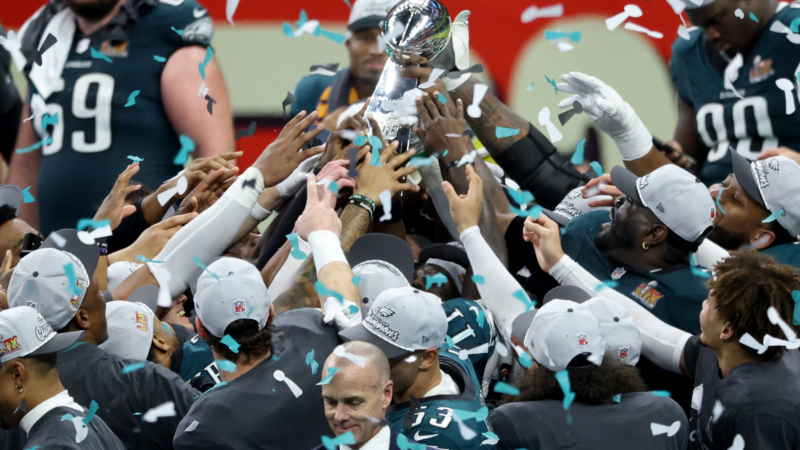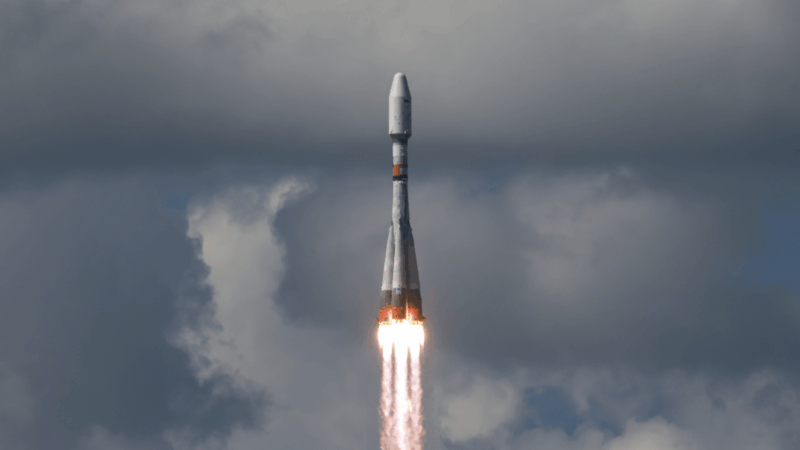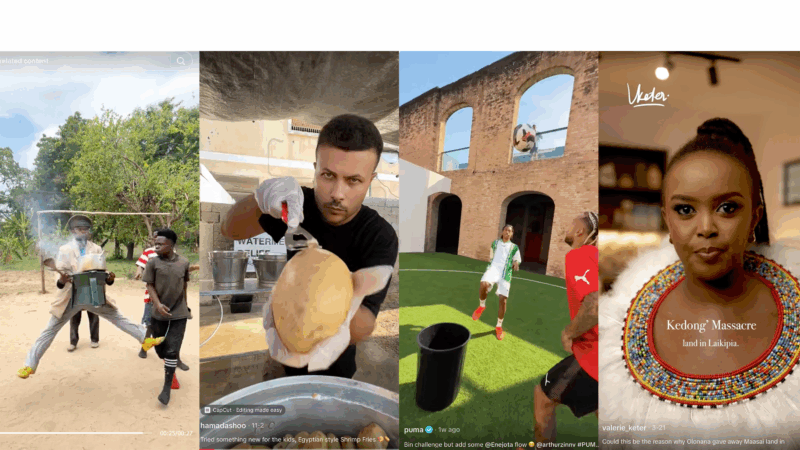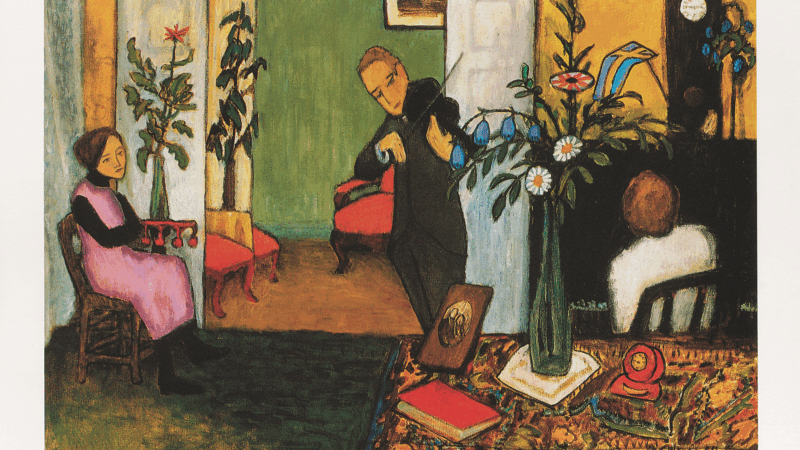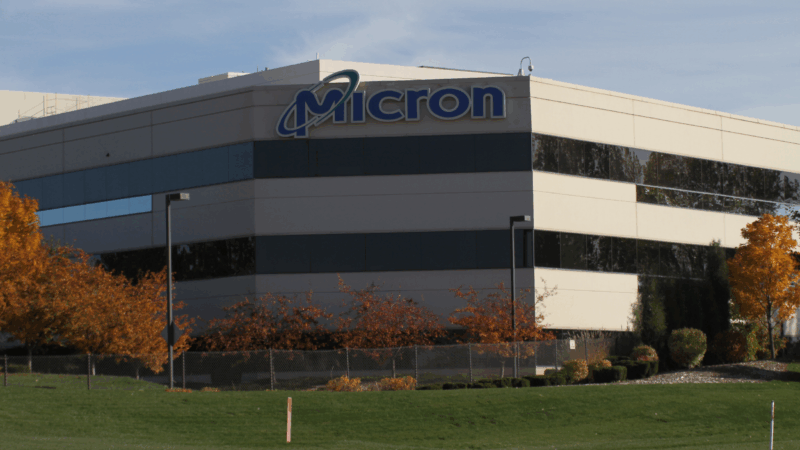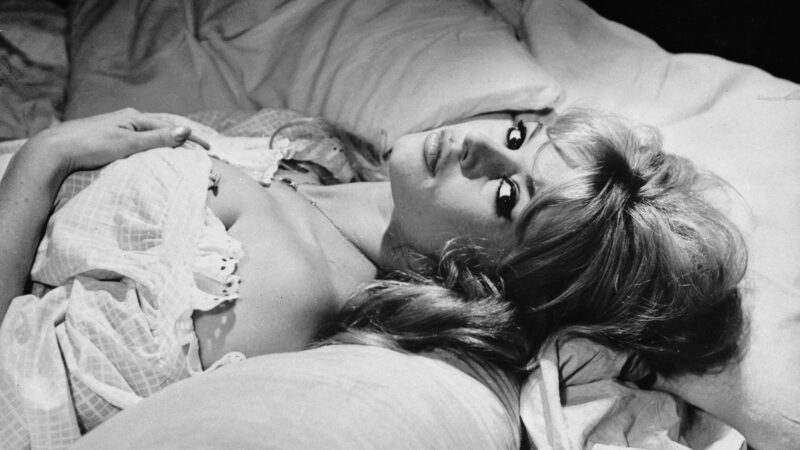Will the Eagles visit the White House after Super Bowl win? They didn’t last time
The Philadelphia Eagles secured the coveted Super Bowl victory this week over the Kansas City Chiefs. But will the winning team make the customary visit to the White House to celebrate with President Trump? If history is any indication, probably not.
Not only did President Trump attend the game to root for Kansas City — lavishing praise on team quarterback Patrick Mahomes — but Trump and the Philadelphia team share a tense past.
The last time the Eagles scored a Super Bowl win was in 2018, during Trump’s first presidency. That year, across professional sport organizations, teams were embroiled in controversy over athletes choosing to kneel during the National Anthem in protest of systemic racism in America.
Trump was one of the most vocal critics against the protests, calling for athletes who did not stand during the anthem to be fired.
Because of his stance, a majority of the 2018 Eagles team planned to boycott the trip to 1600 Pennsylvania Ave.
Rather than face being publicly snubbed, Trump disinvited the team altogether.
“The Philadelphia Eagles Football Team was invited to the White House,” Trump wrote on X at the time. “Unfortunately, only a small number of players decided to come, and we canceled the event.”
The optics of a White House visit — or lack thereof — by either team, would paint a picture of the current dynamics of American politics.
The Super Bowl visit dates back to President Jimmy Carter’s administration and for decades had been viewed as a nonpartisan celebration of America’s favorite sport.
But the dynamics have changed in recent years. While it’s not unusual for a president to talk sports, Trump has bucked convention, publicly castigating players with whom he disagrees, while also adulating those whom he views as politically aligned with him.
Even Trump’s decision to travel to the New Orleans showdown showed the shift from conformity. He is the first sitting president to ever attend the big game.
And issues like NFL athletes kneeling during the National Anthem and Trump’s public response have highlighted how deeply partisanship has infiltrated even the most unifying of American pastimes.
The racial politics of a visit are also on display. In a league where an overwhelming majority of players are Black or minority, Trump’s comments have often been perceived as racist, creating static even between the players and league leadership.
Representatives for the Eagles did not respond to requests for comment on whether the team had been invited to the White House or whether they would accept such an invitation.
‘Bomb cyclone’ forecasted to bring heavy snow, blizzard conditions and dangerous travel
A 'bomb cyclone' is intensifying severe winter weather for millions of people across the U.S. The system is expected to knock out power and disrupt holiday travel.
Russia sends 3 Iranian satellites into orbit, report says
The report said that a Russian rocket sent the satellites on Sunday from a launchpad in eastern Russia.
Viral global TikToks: A twist on soccer, Tanzania’s Charlie Chaplin, hope in Gaza
TikToks are everywhere (well, except countries like Australia and India, where they've been banned.) We talk to the creators of some of the year's most popular reels from the Global South.
This painting is missing. Do you have it?
An important work from a rediscovered artist has been absent from public view since the 1970s. A New York curator is hunting for it.
Memory loss: As AI gobbles up chips, prices for devices may rise
Demand for memory chips currently exceeds supply and there's very little chance of that changing any time soon. More chips for AI means less available for other products such as computers and phones and that could drive up those prices too.
Brigitte Bardot, sex goddess of cinema, has died
Legendary screen siren and animal rights activist Brigitte Bardot has died at age 91. The alluring former model starred in numerous movies, often playing the highly sexualized love interest.

